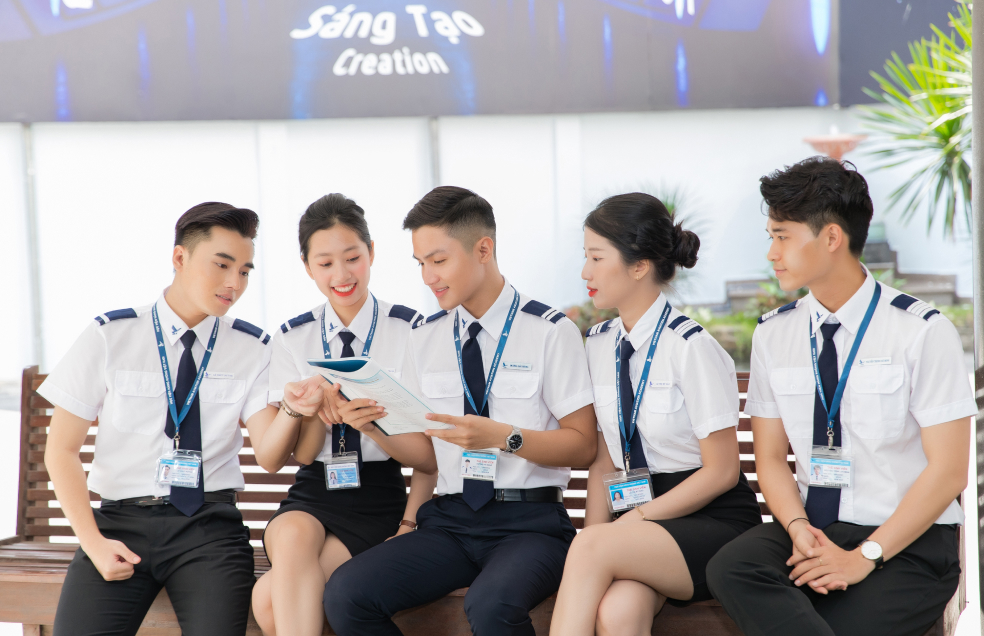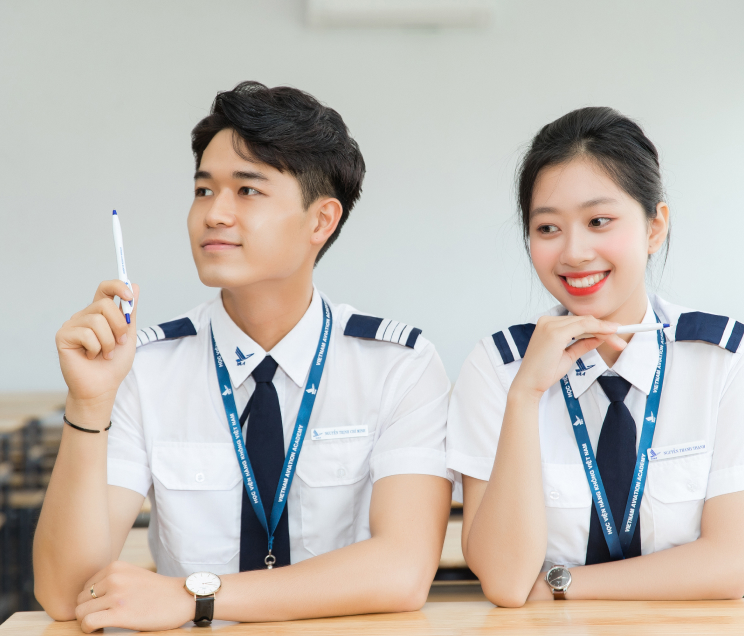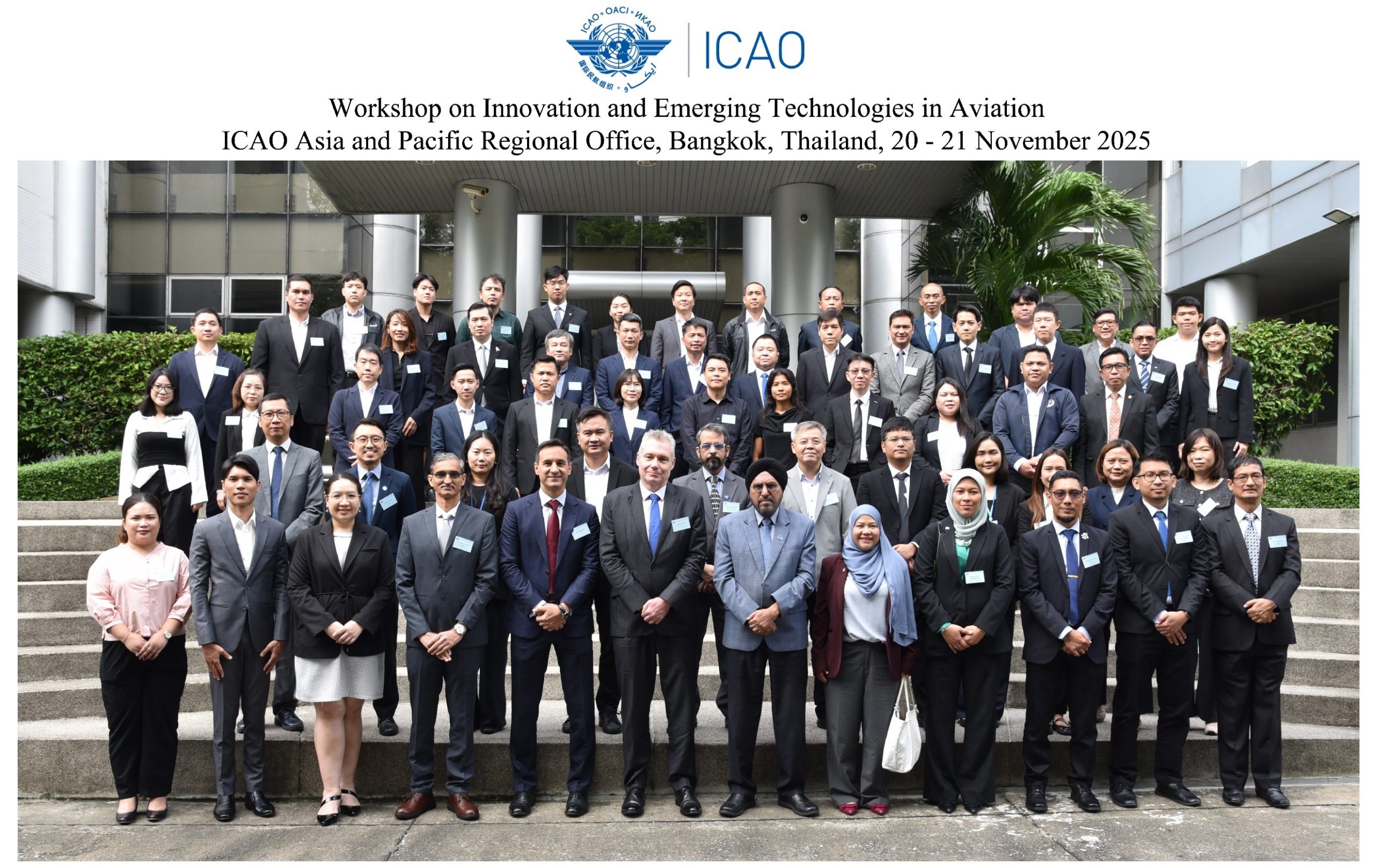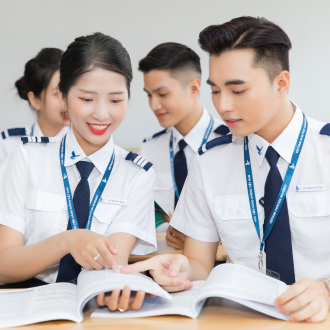VIETNAM AVIATION ACADEMY ATTENDS ICAO ASIA-PACIFIC (APAC) SEMINAR ON INNOVATION AND EMERGING TECHNOLOGIES IN AVIATION
A delegation from the Vietnam Aviation Academy (VAA), comprising Dr. Nguyen Phi Long (Faculty of Construction), Ms. Ho Thi Thu Hien, M.A. (Faculty of Aviation Operations), and specialist Mrs. Jeon (Department of Science, Technology & International Cooperation), represented Vietnam at the ICAO Asia-Pacific (APAC) Regional Seminar on Innovation and Emerging Technologies in Aviation. The event took place from November 20-21, 2025, in Bangkok, Thailand, organized by the ICAO APAC Office, with participation from countries, aviation authorities, and international organizations in the region.
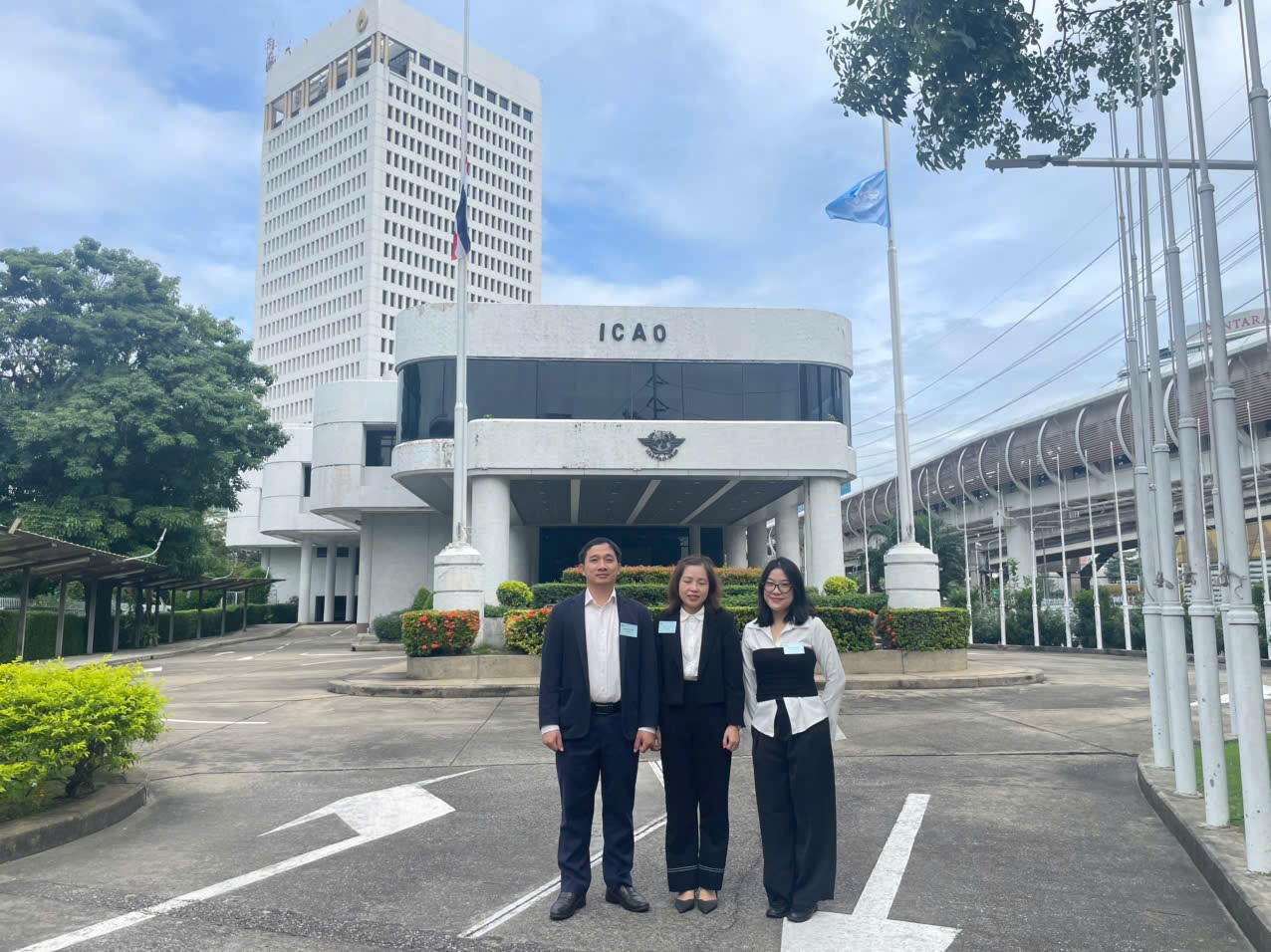
A delegation from the Vietnam Aviation Academy (VAA)
During the opening session, the delegation gained insights into key strategic directions for global innovation through the keynote presentation by Mr. Yuri Fattah (ICAO Headquarters, Canada). The content emphasized the role of innovation as a “strategic driver” enabling the aviation sector to achieve its goals in safety, efficiency, sustainability, and resilience. This knowledge is highly valuable for the Academy’s training and research orientation and helped the delegation affirm its capacity to participate in policy forums at regional and international levels.
The delegation participated in a discussion session on regulatory challenges for Artificial Intelligence (AI), Remotely Piloted Aircraft Systems (RPAS), Advanced Air Mobility (AAM), and other new technologies. Here, Mr. David Waller (EASA) introduced the European AI Roadmap 2.0 for the 2024-2027 period, focusing on developing regulations for AI reliability and enhanced automation.
The delegation also learned from Indonesia’s experience in building an integrated legal framework for RPAS and AAM based on performance and risk-based approaches. These insights serve as an important foundation for the Academy in developing training programs for high-quality aviation human resources.
The afternoon sessions focused on building a culture of innovation, the role of humans in an automated aviation environment, and the ethical challenges of AI. An EASA report highlighted the risk of “skill degradation” as humans rely on automated systems, underscoring the need to maintain manual skills and enhance monitoring competency training. The delegation also participated in interactive polls via the Pigeonhole Live app, contributing opinions on barriers to innovation for ICAO Member States. The delegation showed particular interest in Thailand’s aviation training models, including the Open Innovation initiative linked to ICAO’s NGAP strategy. Thailand’s “tripartite” cooperation model (Education – Industry – Government) was evaluated as a significant reference for Vietnam in developing next-generation aviation talent.
The Civil Aviation Training Center of Thailand (CATC) also showcased its A320 MTD virtual maintenance training simulator, composite materials laboratory, and high-tech engineering facilities such as 3D printing and laser cutting. These are areas the Academy can integrate into its training programs and international cooperation orientation. Reports from Japan Airlines, ANA, and Bangalore International Airport provided practical examples of predictive maintenance and data-driven safety transformation. The delegation also gathered information from DELV Aerospace on lower airspace management, along with analyses from CSIR–IIP (India) and Petronas (Malaysia) on the progress of Sustainable Aviation Fuel (SAF) development. These trends are crucial for the sustainable development orientation of Vietnam’s aviation industry.
During the closing session, ICAO APAC proposed recommendations to enhance inter-ministerial, inter-sectoral, and inter-training institutional cooperation to promote interoperability and the deployment of new technologies. The VAA delegation actively participated, identifying priority areas for future collaboration such as AI in aviation training, lower airspace management, and the development of new training materials and technologies.
Full compliance with all ICAO and host country requirements – from pre-deadline registration, identification badges, work visas, to the Digital Arrival Card (TDAC) – ensured the delegation maintained professionalism throughout the mission. The delegation independently arranged accommodation at ICAO-discounted hotels like Centara Grand and Best Western Chatuchak for convenient travel and focused participation in the seminar activities.
KHCN&HTQT

Vietnam Aviation Academy compiled national standards on ground radio navigation aid systems

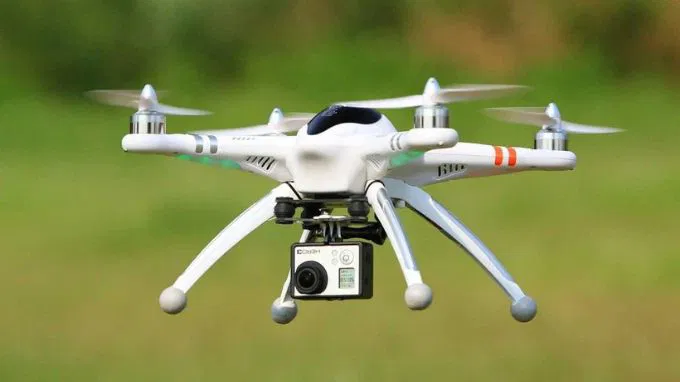
What is a UAV? What is a drone? What is the difference between UAV and drone?

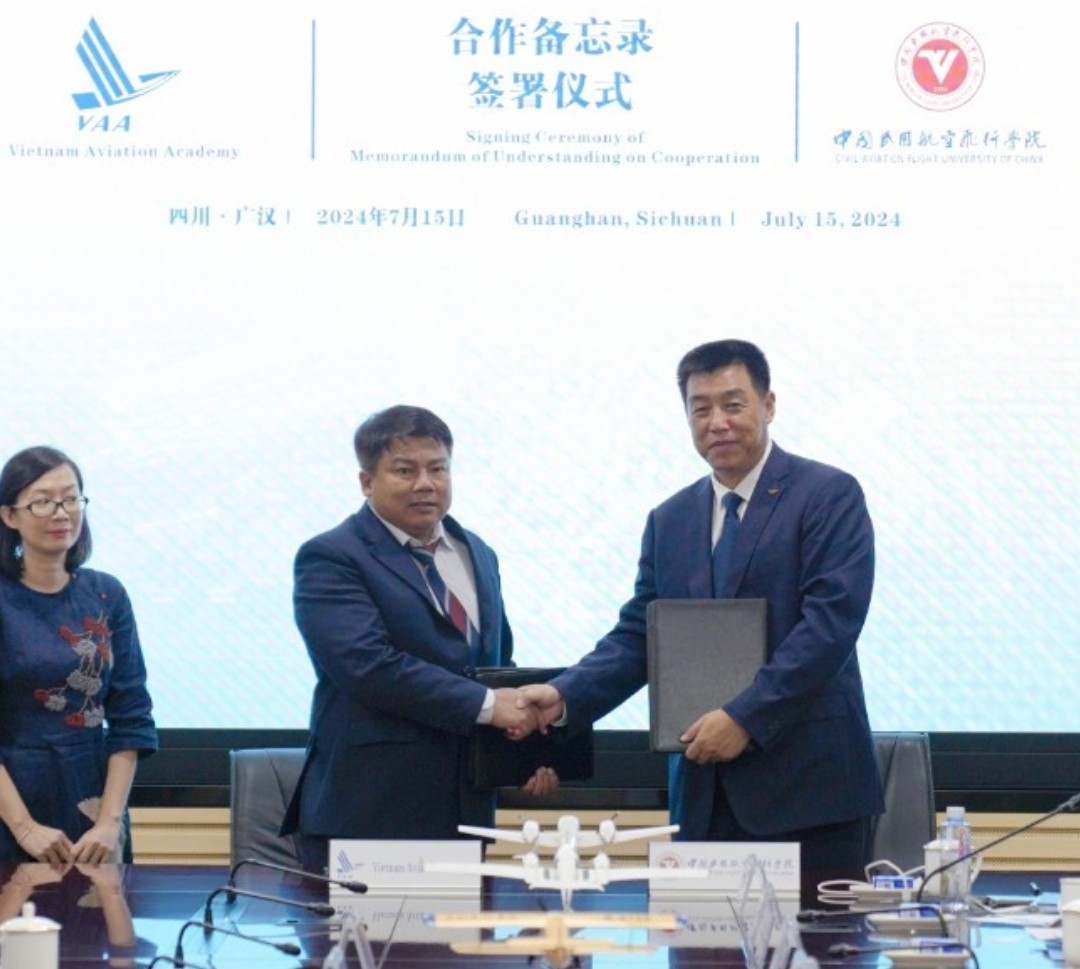
VIETNAM AVIATION ACADEMY HAS SIGNED A COOPERATION AGREEMENT WITH CIVIL AVIATION FLIGHT UNIVERSITY OF CHINA

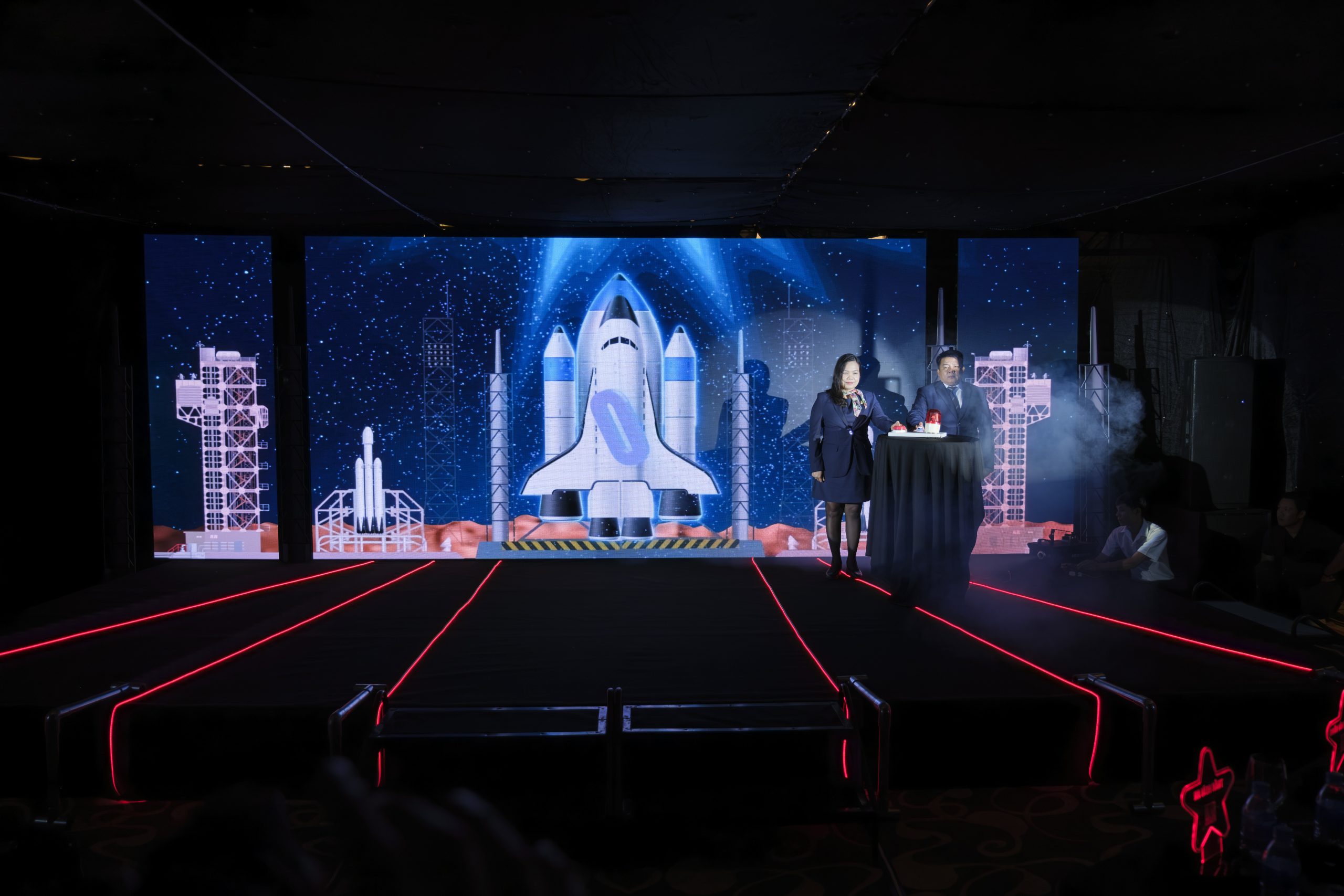
Workshop on Developing a Strategic Plan for the Vietnam Aviation Academy: Resolutely Realizing Key Strategic Objectives


The Impact of Artificial Intelligence on the Global Economy: An Ongoing Revolution

